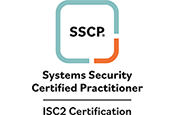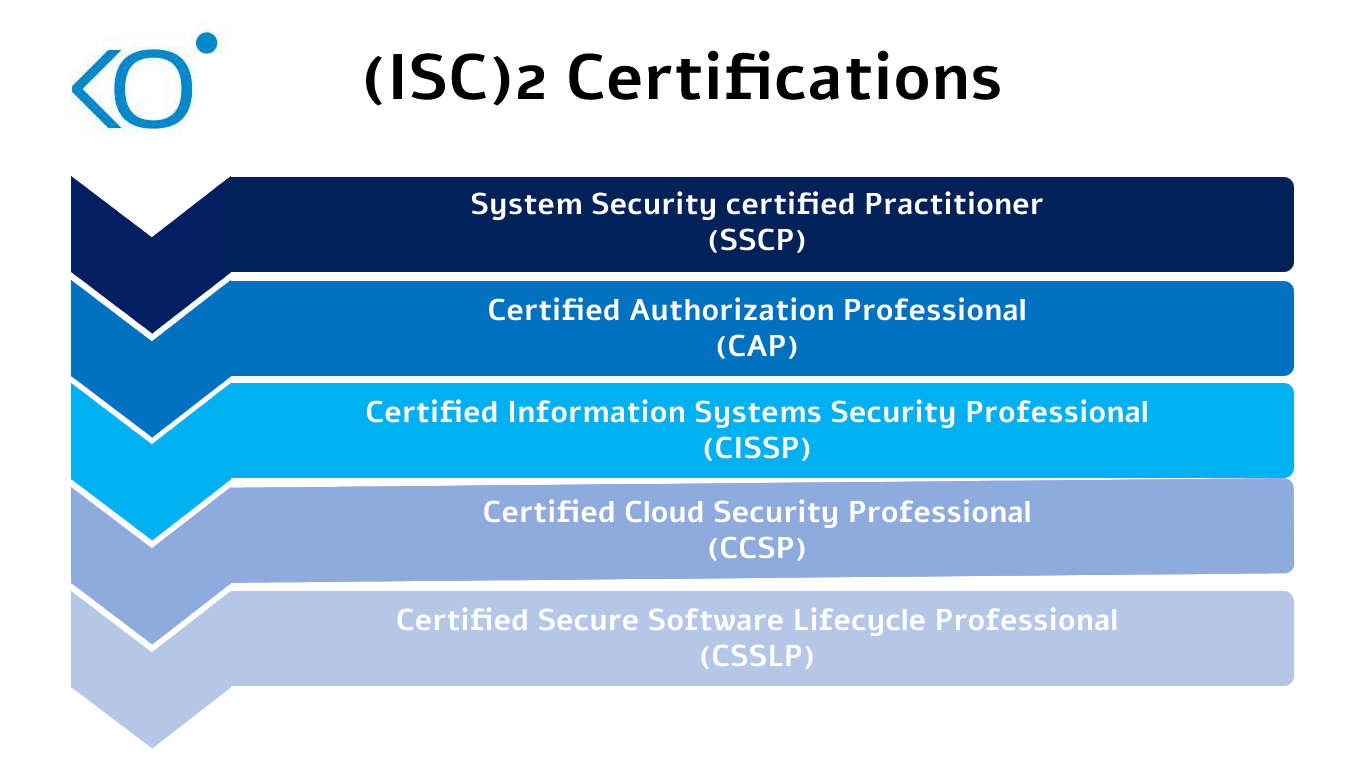Unable to find what you're searching for?
We're here to help you find itSystems Security Certified Practitioner (SSCP ) Course Overview
The SSCP course is a foundational training program designed for IT professionals seeking to showcase their knowledge in the field of security. This course equips learners with the skills needed to implement, monitor, and administer IT infrastructure in accordance with established cybersecurity policies and procedures that ensure data confidentiality, integrity, and availability. The training covers various aspects of security operations, including Access controls, Risk identification, incident response, Cryptography, network security, and Systems and application security. By completing the SSCP Certification, individuals demonstrate their technical ability to tackle operational security challenges and adhere to best practices. It is an excellent stepping stone for those aspiring to build a career in cybersecurity and provides a comprehensive understanding necessary to protect organizations against cyber threats.
Successfully delivered 64 sessions for over 129 professionals

Purchase This Course
USD
View Fees Breakdown
| Course Fee | 2,080 |
| Exam Fee | 249 |
|
Total Fees (without exam) |
2,080 (USD) |
USD
View Fees Breakdown
| Course Fee | 1,600 |
| Exam Fee | 249 |
|
Total Fees (without exam) |
1,600 (USD) |
USD
View Fees Breakdown
| Flexi Video | 16,449 |
| Official E-coursebook | |
| Exam Voucher (optional) | |
| Hands-On-Labs2 | 4,159 |
| + GST 18% | 4,259 |
|
Total Fees (without exam & Labs) |
22,359 (INR) |
|
Total Fees (with exam & Labs) |
28,359 (INR) |
| Day | Time |
|---|---|
|
to
|
to |
♱ Excluding VAT/GST
You can request classroom training in any city on any date by Requesting More Information
♱ Excluding VAT/GST
You can request classroom training in any city on any date by Requesting More Information
Certainly, here are the minimum required prerequisites for successfully undertaking the Systems Security Certified Practitioner (SSCP) course, formatted for your FAQ section:
Please note that while having these prerequisites will aid in the understanding of the course material, motivated individuals with a strong desire to learn and a commitment to their professional development in cybersecurity may also successfully complete the SSCP course.
| Exam Component | Details |
|---|---|
| Exam Name | Systems Security Certified Practitioner (SSCP) |
| Exam Type | Multiple Choice Questions (MCQs) |
| Total Questions | 125 |
| Passing Score | 700 (out of 1000) |
| Exam Duration | 180 minutes |
| Language | English |
| Exam Provider | (ISC)² |
| Exam Registration | Through (ISC)²'s official website or authorized Pearson VUE testing centers |
| Certification Validity | 3 years (requires continuous professional education credits for renewal) |
| Recommended Training | Official SSCP Training Seminar or other (ISC)² approved training resources |
The Systems Security Certified Practitioner (SSCP) course is designed for IT professionals seeking to enhance their cybersecurity skills and knowledge.
The SSCP course equips learners with critical skills in cybersecurity, covering operational security, risk management, incident response, cryptography, network defense, and systems security.
Cryptography is the practice of securing information by transforming it into a form that only authorized parties can access and understand. It uses algorithms and keys to encrypt and decrypt data, ensuring that sensitive information such as passwords, financial details, and personal data remains protected from unauthorized access and breaches. Cryptography is essential in securing online communications and transactions, and is at the heart of various security certifications and courses such as SSCP (Systems Security Certified Practitioner), which offers specialized training in this field.
Access controls are security techniques that regulate who or what can view or use resources in a computing environment. These controls are essential to ensure confidentiality, integrity, and availability of resources. They help manage and limit the access to systems, networks, and data based on pre-defined rules and policies. Each individual or device trying to access a controlled resource must pass through a verification process, typically requiring credentials like passwords, biometric data, or access codes. Proper implementation of access controls is a cornerstone of effective security strategies in protecting sensitive information and systems from unauthorized access.
Risk identification is a crucial step in the risk management process, which involves recognizing and describing potential risks that could affect a project or business operation. This process helps in anticipating issues before they arise, allowing organizations to prepare or mitigate risks effectively. It involves analyzing the environment and operational activities to spot sources of risk—be it from financial, legal, technological, or human-related factors. Regularly identifying risks is essential for maintaining control over potential threats and ensuring smooth and secure operations. This proactive approach supports better decision-making and strategic planning.
Incident response is the process of identifying, managing, and mitigating security breaches or cyberattacks. The strategy involves preparing a structured response to minimize damage, recover any affected systems, and reduce the risk of future incidents. Effective incident response requires a coordinated effort, often supported by specialized training such as the SSCP course. SSCP certification training enhances skills in monitoring systems, recognizing threats, and acting against them. An SSCP training course typically covers the essentials of securing an organization and understanding best practices for incident management, making it valuable for those pursuing a career in security.
Network security is the practice of protecting a computer network from intruders, whether targeted attackers or opportunistic malware. It involves various policies, technologies, and controls designed to safeguard the integrity, confidentiality, and accessibility of network and data. Essential strategies include access control, virus and antivirus software, firewalls, and secure VPNs. Those interested can enhance their expertise through resources like an SSCP certification training, where courses offer comprehensive knowledge on security fundamentals. Recognition such as the SSCP security certification proves one's skills in implementing, monitoring, and administering IT infrastructure using security best practices, policies, and procedures.
Systems and application security involves protecting software and operating systems from malicious attacks, ensuring data integrity, confidentiality, and availability. It covers measures to defend against unauthorized access and vulnerabilities within apps and their platforms. Key practices include regular security assessments, user access control, and encryption. Achieving an SSCP security certification through SSCP certification training or an SSCP online course can empower professionals with essential skills for these tasks. These educational paths, including any SSCP course or SSCP training course, are pivotal in grooming experts capable of handling and securing digital infrastructures efficiently.
The Systems Security Certified Practitioner (SSCP) course is designed for IT professionals seeking to enhance their cybersecurity skills and knowledge.
The SSCP course equips learners with critical skills in cybersecurity, covering operational security, risk management, incident response, cryptography, network defense, and systems security.






